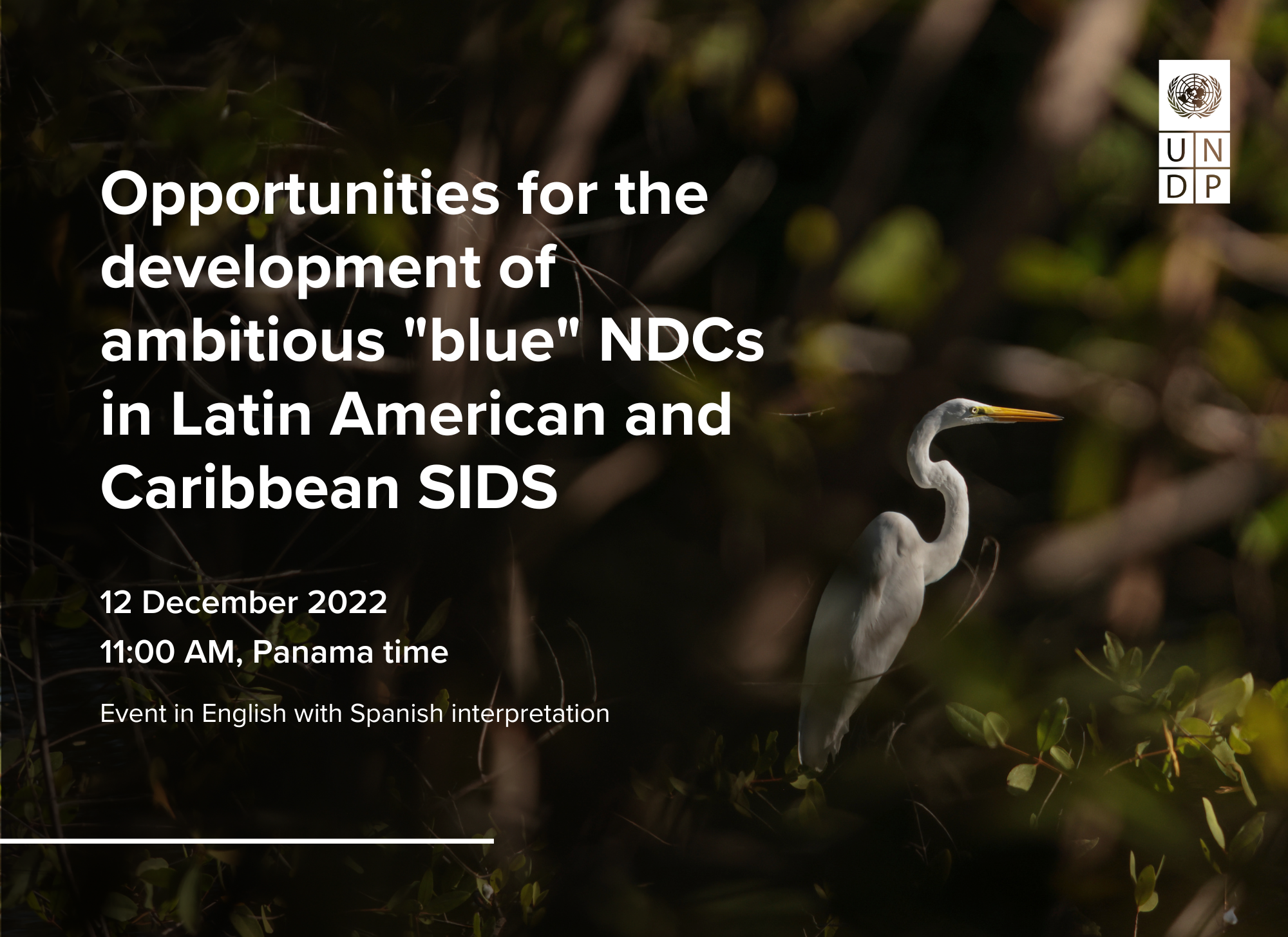
Small Island Developing States (SIDS) of Latin America and the Caribbean (LAC) are among the most vulnerable countries in the world, relying heavily on their marine and coastal assets to sustain livelihoods, through fisheries, tourism and shipping. Due to their vulnerability to economic shocks and their dependency on natural resources, the consequences of biodiversity loss and climate change have disproportionate effects on SIDS. By promoting the blue economy, LAC SIDS can foster economic growth, social inclusion and preserve or improve livelihoods while at the same time ensure environmental sustainability of the oceans and coastal areas.
The protection, recovery and sustainable management of marine and coastal ecosystems can have a positive contribution to national commitments established within the Nationally Determined Contributions (NDCs), offering an opportunity for countries to increase ambition towards their climate change goals and improve resiliency by enhancing the role of nature, including blue carbon, as a climate solution for mitigation and adaptation. This will allow island countries to address the climate and biodiversity crisis while integrating innovative financial instruments that take into account communities and local action.
This event will seek to promote discussion based on a paper prepared by the UNDP Engagement Facility with the support of UNDP’s Climate Promise, which aims to assist countries looking to integrate marine and coastal-based actions in their NDCs, identify initiatives in LAC SIDS that promote the concepts of blue economy, blue carbon and nature-based solutions, and examine the opportunities and challenges for the integration of blue carbon in NDCs.